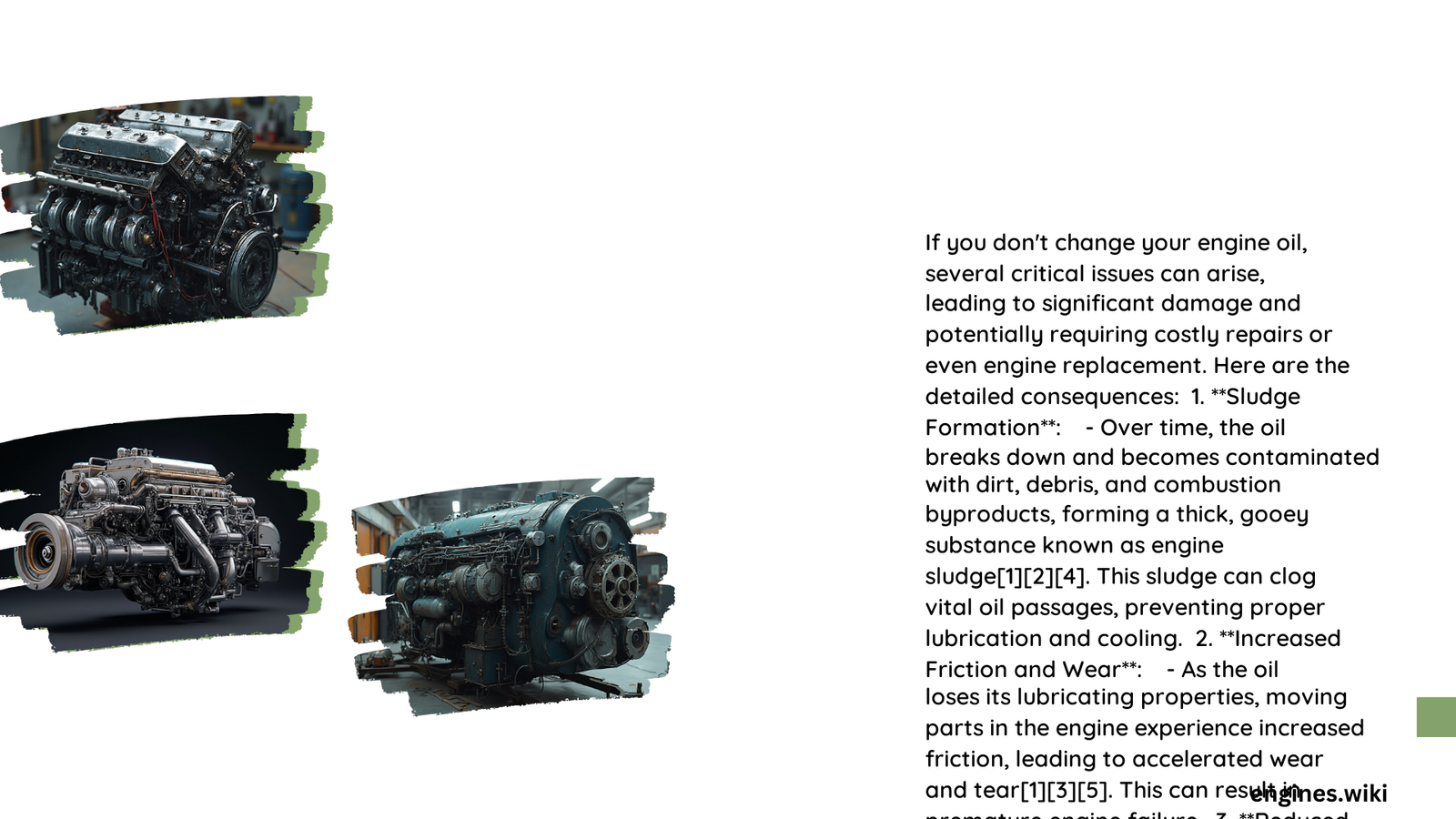Neglecting engine oil changes is like playing a dangerous game of automotive Russian roulette. When you ignore this critical maintenance task, your engine transforms from a precision machine into a ticking time bomb of mechanical destruction. Engine oil serves as the lifeblood of your vehicle, and its breakdown can trigger a cascade of catastrophic failures that can render your car’s engine completely useless, potentially costing thousands in repairs or complete replacement.
What Happens to Engine Components Without Regular Oil Changes?
How Does Oil Degradation Impact Engine Performance?
Engine oil undergoes significant transformation when not changed regularly. Here’s a detailed breakdown of the progressive damage:
Lubrication Breakdown Process
- Initial Stage: Oil begins to lose viscosity
- Intermediate Stage: Contaminants accumulate
- Critical Stage: Complete lubricant failure
| Oil Condition | Friction Increase | Wear Rate | Potential Damage |
|---|---|---|---|
| Fresh Oil | Minimal | Low | None |
| Degraded Oil | Moderate | Medium | Potential Component Wear |
| Completely Broken Down | Extreme | High | Severe Engine Damage |
What Occurs During Extended Oil Neglect?
When engine oil is not changed, multiple destructive processes simultaneously occur:
- Thermal Breakdown
- Oil molecules begin to break down at high temperatures
- Loses critical protective properties
-
Creates harmful carbon deposits
-
Contaminant Accumulation
- Metal particles mix with degraded oil
- Creates abrasive sludge
- Accelerates internal engine component wear
Can Sludge Formation Destroy Your Engine?
Sludge represents one of the most insidious threats to engine health. This mayonnaise-like substance:
– Blocks critical oil passages
– Prevents proper lubrication
– Creates localized extreme heat zones
– Causes premature bearing and cylinder wall failure
What Economic Impact Results from Oil Change Negligence?
The financial consequences can be staggering:
– Average engine replacement cost: $4,000 – $8,000
– Potential complete vehicle write-off
– Voided manufacturer warranties
– Reduced vehicle resale value
How Quickly Does Engine Damage Occur?
Damage Timeline:
– First 1,000 Miles: Minor performance degradation
– 3,000-5,000 Miles: Significant wear begins
– 7,000+ Miles: Potential catastrophic failure
Critical Warning Signs of Oil Degradation

🚨 Immediate Action Required If You Notice:
– Knocking sounds from engine
– Decreased fuel efficiency
– Burning oil smell
– Dark, thick oil consistency
– Engine temperature fluctuations
Preventative Maintenance Recommendations
✅ Best Practices:
– Follow manufacturer’s recommended oil change intervals
– Use high-quality oil filters
– Choose manufacturer-recommended oil grade
– Regular professional engine inspections
Conclusion: Prevention is Always Cheaper Than Replacement
Regular oil changes represent a minimal investment compared to potential engine replacement costs. By dedicating a small amount of time and money to this crucial maintenance task, you protect your vehicle’s most expensive component and ensure long-term reliability.
